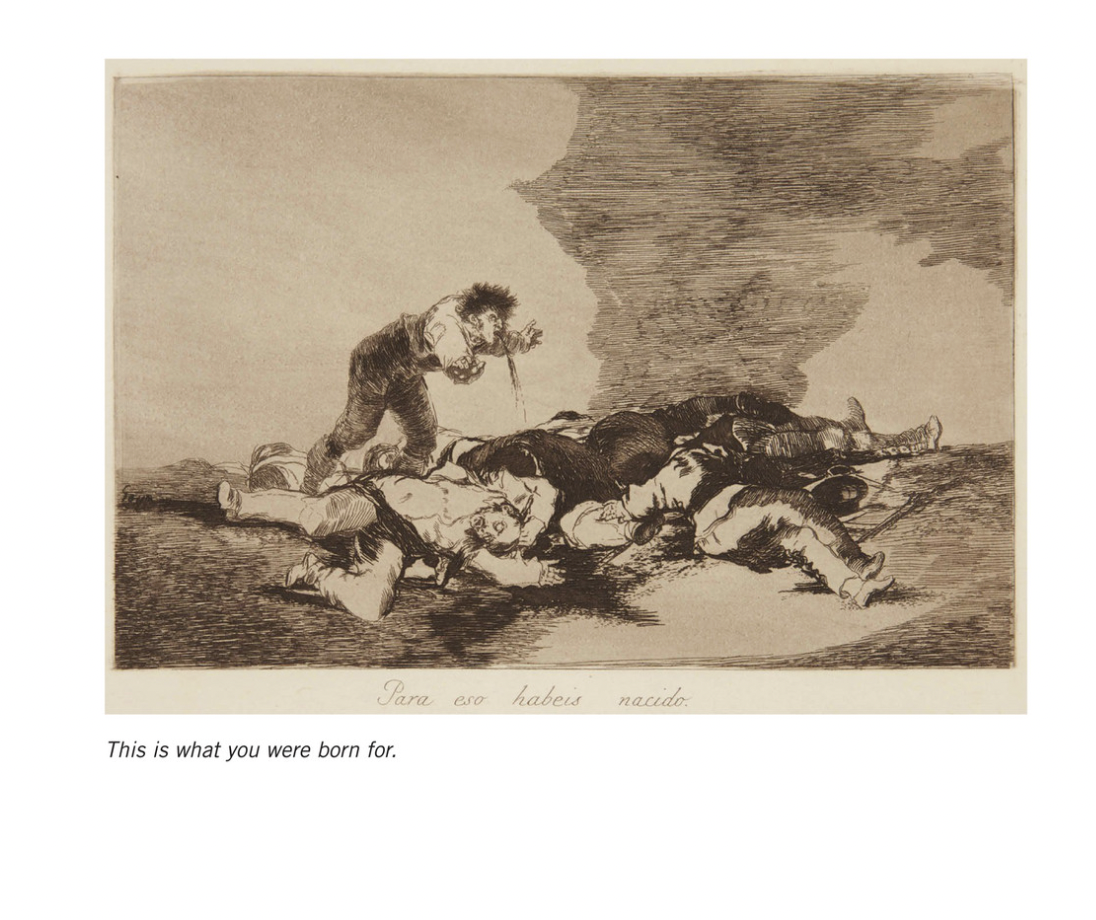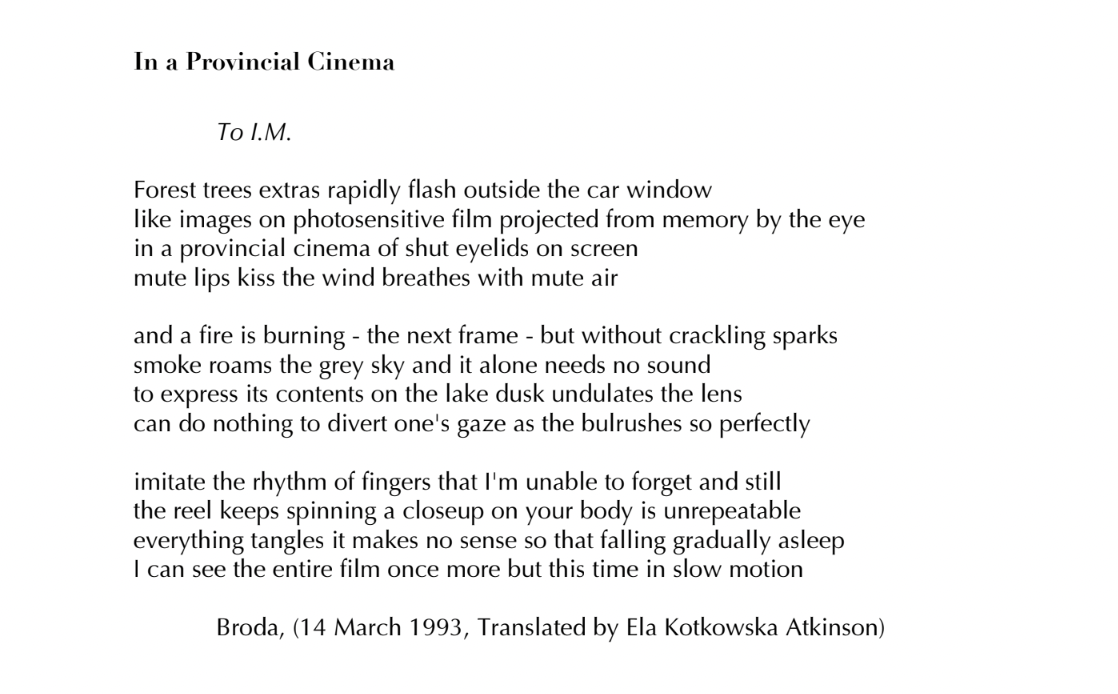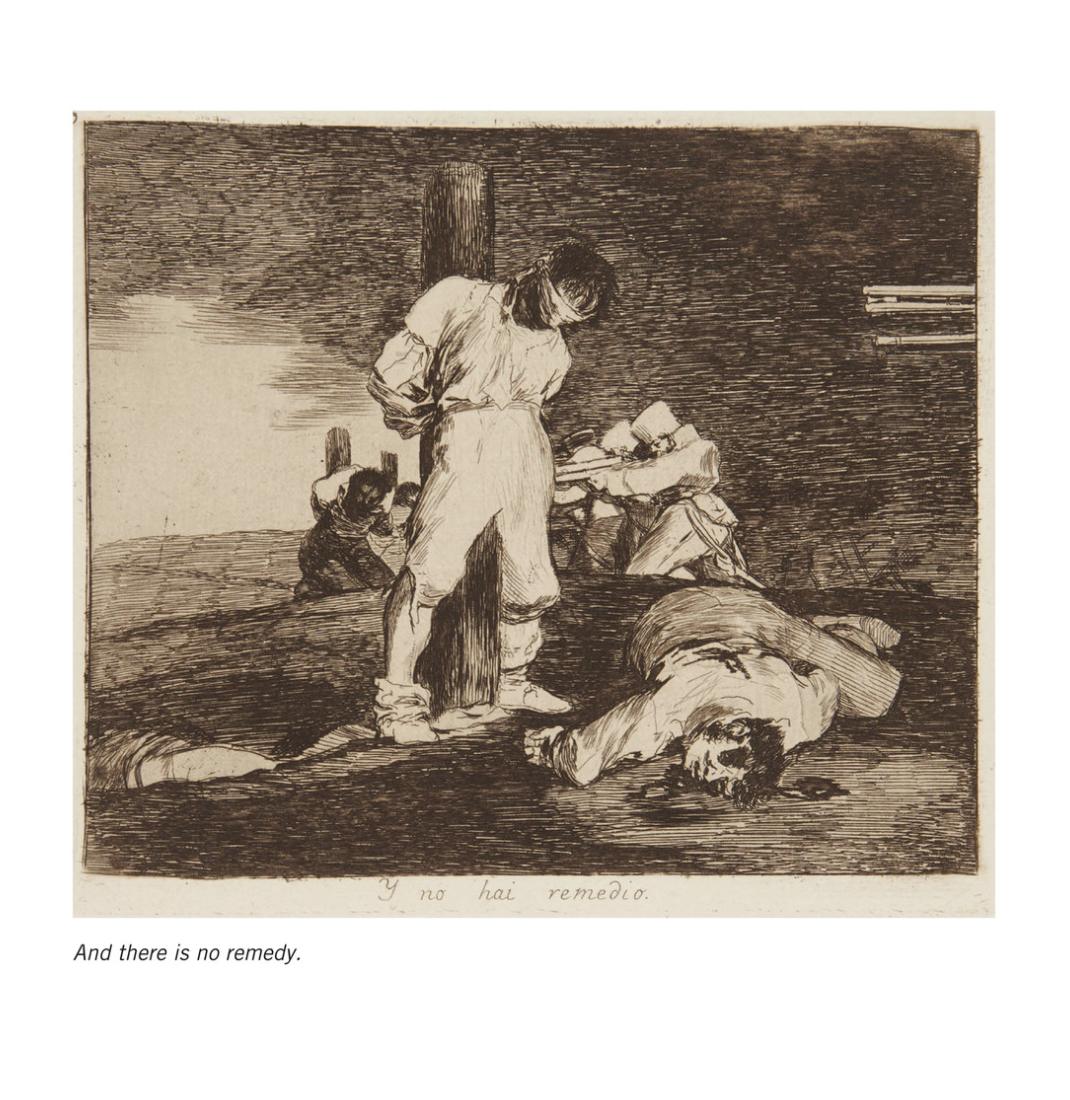“Yes, at one time, I did think that I’d found my niche in my words but then, how shall I put it? Words made their presence felt through their difference. […] It was as though, all of a sudden, I could only express myself through silence in that space left vacant by their difference.”
“What difference?”
“Something fundamentally incompatible between man and his words, something that keeps them at a distance.”
— Edmond Jabès
“There are many ways of taking notes,” I said to myself in June 2023.
It is said that Francisco de Goya went out at night frequently while Napoleon’s troops ravaged Spain and put flesh on the word, “atrocity.” A gardener named Isidro often accompanied the artist on his nightwalks through Quinta del Sordo. One night, as Goya sketched the stacked corpses along a hillside, Isidro asked why he felt the need to depict such barbarities. Without looking up from the bodies, Goya replied, “In order to acquire the taste for saying for ever and ever to men that they should not be barbarians.”
“If we imagine for a moment that our enemies were to get wind of what we are doing and try to use it as propaganda, it would do them no good at all, for the very good reason that no one would believe them,” wrote the Reichskommissar for the East in a June 1943 letter to his peers in Berlin.
“This transformation of an experience into language, this possibility of a relationship between our sensibility and a world that reduces it to nothing, can today be seen as the most perfect example in French contemporary writing of what literature can be,” Georges Perec wrote in his study of Robert Antelme’s The Human Space, a book which revisited Antelme’s experiences after being deported to Buchenwald, Gandersheim and Dachau.
The commitment to express the inexpressible is central to modern literature.
“There are many ways of trying to say rootless things,” I said to someone else in June 2024.
The words of a given language limit our horizon.
The words are unsuitable to the task of speech.
The writer feels unsuitable to the labor of saying.
The writer has felt this way since lifting the first piece of scorched wood to draw upon the walls of the man-cave.
“In the beginning, men and animals and even stones were gods. Everything happened without a name and without a law,” said Bia to Kratos, as written by Cesar Pavese.
Consider a colony of protozoans leading their obscure lives in a pond.
Consider the “extras” flashing through the car window of a poem by Broda.
The bowl that the deceased used to wash must be placed outside with its mouth to the ground and it cannot be used until the dead is buried.
Consider the mouth of the bowl being washed out with soap like a 1950’s sitcom.
What notes have been taken by the photograph of a child with soap in its mouth and a bowl in the margins?
*
Charles Mingus, “II B.S.”
Edmond Jabès, El, ou le dernier livre (Gallimard, 1973)
Francisco de Goya, The Disasters of War Portfolio
Robert Antelme, Essais et témoignages, introduced by Daniel Dobbels (Gallimard, 1996)


